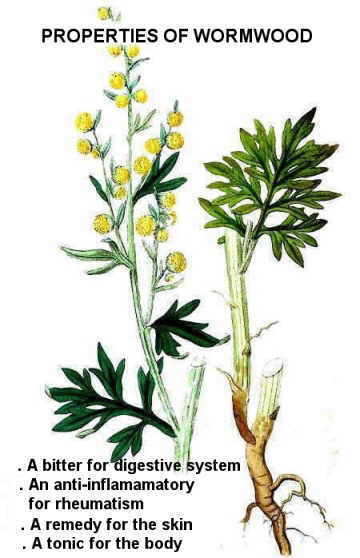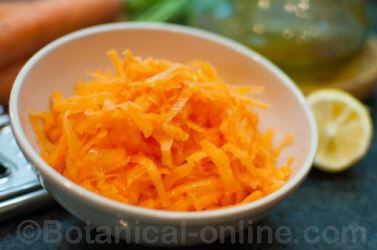Contents
- 1 Benefits of coffee
- 2 MEDICINAL PROPERTIES OF COFFEE
- 2.1 Positive effects of drinking coffee
- 2.2 Negative effects of drinking coffee. Contraindications and toxicity of coffee
- 2.3 Who should not drink coffee?
- 2.4 Coffee and pregnancy. Effects of drinking coffee while pregnant
- 2.5 Effects of drinking coffee while breastfeeding
- 2.6 Coffee addiction. Does coffee creates dependency?
Benefits of coffee
Composition of Coffee
- Acids: allantoic-acid (Leaves) aspartic-acid, capric-acid, citric-acid, daturic-acid, stearic-acid, glutamic-acid, isochlorogenic-acid, linoleic-acid, linolenic-acid, myristic-acid, oleic, palmitic (Seeds), caffeic-acid (leaves and seeds), oxalic-acid (Fruit), P-Coumaric-acid (Plant)
- Amino acids: Methionine, asparagine (Seeds)
- Alkaloids: caffeine (Seeds) theobromine (leaves and seeds)
- Volatile oils: caffeol, guaiacol, octanol (Seeds)
- Phytosterols: stigmasterol, beta-sisosterol, campesterol (Seeds)
- Terpenes: cafestol (Seeds), beta-carotene (Leaves)
- Carbohydrates (leaves and seeds): raffinose, rhamnose, sucrose, stachyose (seeds)
- Fiber (leaves, seeds): pectin, cellulose and hemicellulose
- Fat (leaves and seeds)
- Tannins: (Seeds)
- Minerals: Calcium (Leaves), iron, phosphorus (seeds and leaves)
- Vitamins: niacin, Riboflavin, thiamine, (leaves and seeds) choline (Seeds)
- Water (Plant)
MEDICINAL PROPERTIES OF COFFEE
Positive effects of drinking coffee
- Central nervous system stimulant: Because of its high caffeine content, preparations from coffee beans are used as a common remedy for stimulating the body. This way, coffee is used to make someone to stay awake in order to avoid drowsiness. It also stimulates the mind and increases body’s energy. Numerous studies have shown that this component improves physical performance and keeps the mind more alert, especially in people who are doing some kind of work that needs especial concentration.

Main benefits of coffee
The most common way to prepare it is by taking infusions of roasted coffee (espresso cups by dripping system or instant coffee by dissolving it). However, there are some other prepared drinks, like colas, which also contain the same principle. Less commonly, ingestion of caffeine supplements should be taken only under medical prescription.
Keep in mind that, in addition to coffee, other foods and drinks may also contain caffeine, such as chocolate, tea (especially black tea), cola beverages and certain soft drinks, sports-type drinks…Caffeine is also presents in supplements, such as preparations to lose weight, also as part of drugs, such as painkillers or antihistamines. In any case, it is recommended that daily caffeine intake should not exceed 200 or 250 mg daily, regardless of the source of its origin.
The following list shows the caffeine content of some preparations with coffee:
| Caffeine content of some beverages with coffee | |
| Espresso | 110 -150 mg |
| Instant soluble coffee | 40 -108 mg |
| American roast | 70 – 90 mg |
- Is coffee suitable for pain? Remedy for mild chronic pain: According to many experts, coffee might be suitable for the treatment of pains that have no a serious reason. That’s to say for fleeting pains that, in most cases, disappear after a few days and should not be medicated with painkillers, according to most experts, because indiscriminate medication may produce counterproductive effects. For example, the use of coffee could help tolerate muscle aches, backache or headache.

Caffeine has vasoconstrictive properties that may explain the analgesic properties of coffee, being able to reduce the inflammation of pericranial vessels, which are responsible for migraine. We have to consider other components with analgesic properties such as caffeic acid, scopoletin or thiamine.
This determines that the infusion of coffee may be appropriate for the treatment of pain, especially headache. In fact, in official medicine, caffeine is used in the manufacture of drugs for headache since this component potentiates the analgesic effects. (Drink a cup of coffee mixed with the juice of half a lemon) (See recipe for homemade coffee)
- Caffeine weight loss: Coffee has many components with diuretic properties (mainly caffeine, theobromine caffeic-acid, chlorogenic-acid, calcium and asparagine). The power of these principles to increase diuresis favors treatment of fluid retention. So, it is used as a common remedy in slimming regimes to combat obesity.
Moreover, methionine content allows you not only to improve the smell of urine by by means of acidifying it, but a prudent use of this beverage could enhance the body’s resistance to urinary tract infections. (Take supplements that contain caffeine and other diuretics plants, according to the conditions of the patient information leaflet and always under supervision of physician or specialist) (Drinking coffee is also a good remedy for weight loss)
- Coffee as antioxidant/ Which is best coffee or tea?: Coffee contains about 30 compounds with antioxidant properties. According to studies conducted by the University of Pamplona (Spain), the antioxidant capacity of coffee is ten times higher than other plants as recognized as black tea or wine. This study showed that the most antioxidant coffee is especially prepared by the method of espresso, which also enhances their flavor and aroma.
Previously, a series of studies had already determined the ability of coffee to eliminate free radicals, which cause many degenerative diseases, including cancer. This action was attributed to phytosterols (stigmasterol, beta-sisterol, campesterol) that have been considered the most responsible principles for its antioxidant activity.
- Coffee and Parkinson’s Disease?: A study conducted at the University of Hawaii noted that people who had higher levels of caffeine in blood were less likely to have Parkinson’s disease. However, many studies have shown that there is no connection between this activity and the lower incidence of this disease, so it is unclear whether coffee helps to decrease the chance of developing it.
- Coffee and Fever: Coffee leaves infusions are appropriate to reduce fever. The febrifuge properties would be provided by the beta-sitosterol.
- Coffee and digestive tract : Used in low doses, coffee infusions are required to achieve good digestion by increasing digestive juices. Therefore a small cup of coffee after the main meals might be useful in those with a “lazy stomach”. On the contrary, drinking it could be counterproductive in those people with too much active stomachs
A too high or frequent use of this drink can also produce undesirable effects, leading to some digestive problems such as heartburn, stomach ache, irritable bowel, flatulence, diarrhea or constipation.
Negative effects of drinking coffee. Contraindications and toxicity of coffee
Used in moderation, coffee is suitable for the treatment of certain physical abnormalities. However, its use is highly debated because its consumption can easily lead to beneficial or harmful effects.
Among the major problems that an inadequate intake of coffee can originate we have the following:
- Nervousness
- Insomnia
- Tachycardia or irregular heart rate
- Heartburn.
- Flatulence.
- Diarrhea.
- Constipation.
This can easily occur when you exceed the recommended doses (above 250 mg of caffeine content per day – above the 300 according to other specialists) or when used in people with a type of body abnormality that could be exacerbated by the use of this plant.
In the latter case people who suffer from these problems should avoid the intake of coffee:
Who should not drink coffee?
Coffee is not recommended for people:
- People with ulcer
- People with hypertension
- People who suffer from arrhythmias
- People who have had a heart attack recently.
- People who have trouble sleeping.
- People anxious, or stressed
- Women with premenstrual syndrome.
- People with liver problems.
Coffee and pregnancy. Effects of drinking coffee while pregnant
The use of coffee during pregnancy is a hotly debated topic. It is known that high doses of coffee can cause abortions or baby malformations. It has also been demonstrated that pregnant women who take from 2 to 3 cups of coffee are more likely to have babies with low birth weight. It is therefore advisable to consult a doctor or specialist if you are a pregnant woman and you use to drink quite a lot of coffee.
Effects of drinking coffee while breastfeeding
The caffeine in coffee can cause problems to the nursing infant if mothers take large amounts of this beverage. It has been found that an average intake of 600 mg of caffeine daily (the equivalent of 3 to 6 cups of coffee) can cause problems of nervousness, sleeplessness, irritability to infants. Drinking much coffee while breastfeeding will supply nursing infant much caffeine through mother’s milk.
Therefore, if you are a breastfeeding mother and you use to drink quite a lot of coffee, you should minimize its consumption or consult your doctor or specialist.
Coffee addiction. Does coffee creates dependency?
This is the main argument with which critics attack coffee drinking habit. As a matter of fact, caffeine is addictive, so it creates a certain dependency that forces you to drink it regularly. We know that people used to drinking too much coffee present certain symptoms of dependence when they stop drinking it abruptly: headache, tiredness, muscle aches, nervousness, etc..
Naturally, these symptoms disappear after a few days or they can even be avoided if the amount of the beverage is gradually reduced. In the latter case, you can gradually stop drinking without experiencing unpleasant symptoms.
Critics believe that it is even worse the phenomenon of tolerance.That’s to say, the individual drinker is obliged to consume higher quantities to obtain the same effects. This is evident in people who are not accustomed to drinking coffee. A simple cup of coffee may be sufficient for them, whereas people who habitually drink lots of coffee virtually do not realize it when they ingest the first cup.
Between supporters and opponents, a large majority of specialists and scholars believe that the use of this beverage can have beneficial effects if a responsible consumption is taken into account, specially when someone knows in which situations it is desirable or not desirable to drink it.
![]() More information about coffee and caffeine.
More information about coffee and caffeine.








